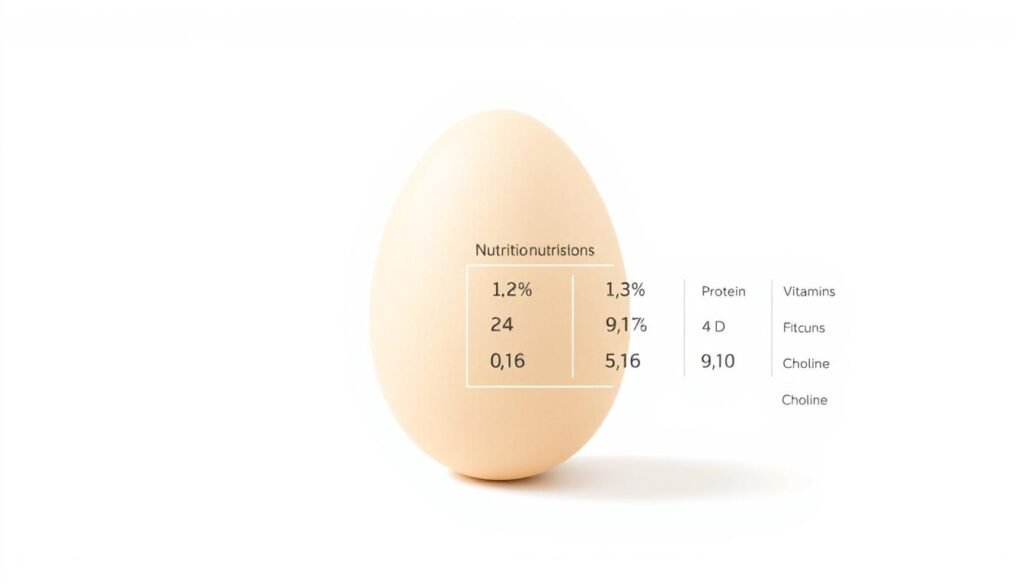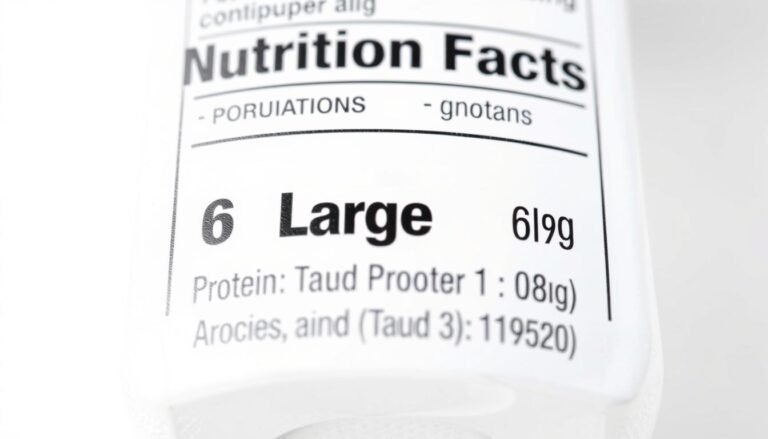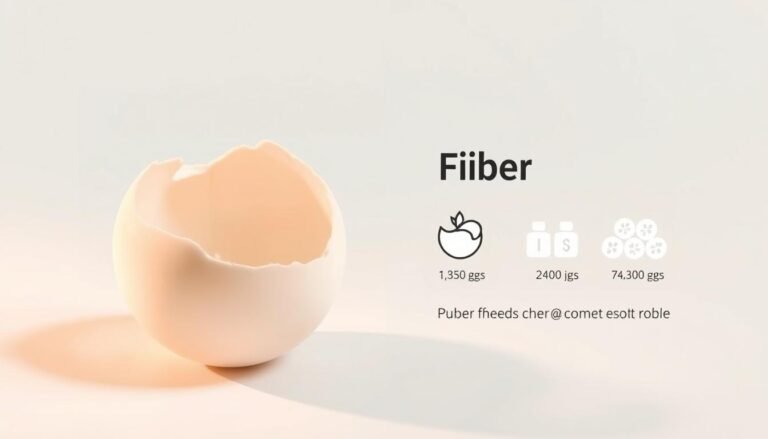Are we blaming the wrong breakfast staple for stubborn pounds? For years, food myths have painted this protein-packed favorite as a dietary villain. Let’s crack open the truth with science-backed insights.
A single large egg contains just 74 calories while delivering 6 grams of high-quality protein. Studies show this combination helps people feel satisfied longer, reducing unnecessary snacking. Nutrients like choline and vitamin D further support metabolic health, making them a smart choice for balanced eating.
Recent research reveals surprising findings. One clinical trial found participants who ate eggs daily experienced better weight loss results compared to those avoiding them. However, conflicting studies suggest moderation matters, especially for individuals with specific health conditions.
Why the confusion? Nutritional context plays a huge role. Pairing eggs with vegetables creates a far different outcome than serving them with processed meats. This article explores cooking methods, portion strategies, and how to leverage eggs’ natural benefits without sabotaging your goals.
Key Takeaways
- Whole eggs provide essential nutrients like choline and vitamin D
- High protein content promotes lasting fullness
- Clinical trials show mixed results about body composition impacts
- Preparation methods significantly influence health outcomes
- Calorie control remains critical for weight management
Understanding the Nutritional Profile of Eggs
Eggs deliver a powerhouse of nutrients often missing in modern diets. Their unique blend of proteins, fats, and micronutrients makes them a standout choice for those prioritizing both health and flavor.
High Quality Protein and Healthy Fats

The whites and yolks work together like a nutritional tag team. Egg protein contains all nine essential amino acids, making it one of the few complete protein sources in nature. This helps maintain muscle mass and keeps hunger at bay for hours.
Yolks shine with heart-healthy unsaturated fats and brain-boosting choline. Though once criticized for cholesterol content, research now shows these golden centers support hormone production and nutrient absorption. Pairing them with fiber-rich vegetables creates meals that satisfy without spiking blood sugar.
Essential Vitamins, Minerals, and Bioactive Compounds
Beyond basic nutrition, eggs offer compounds most foods lack. Yolks contain:
- Vitamin D for bone strength
- Lutein for eye health
- Selenium for immune support
These nutrients work synergistically to enhance energy levels and metabolic function. Studies suggest regular consumption may improve cognitive performance and reduce inflammation markers.
Whether scrambled or poached, this versatile ingredient adapts to any eating pattern. Combined with whole grains and leafy greens, it becomes a cornerstone of nutrient-dense meal planning.
Do Eggs Cause Weight Gain? Debunking Myths and Reviewing Research
Recent analyses reveal surprising patterns in how this breakfast favorite interacts with body composition. Let’s explore what rigorous studies say about its role in energy balance and long-term health outcomes.
Scientific Studies and Clinical Trial Insights

A 2022 meta-analysis of 23 trials found no significant effect on body mass index in short-term interventions. However, extended observational studies showed a slight increase in waist circumference among people with insulin resistance who consumed multiple daily servings.
The thermic effect of protein-rich foods plays a key role. Eggs require more energy to digest compared to carbs or fats—about 30% of their calories get burned during processing. This metabolic boost helps explain why participants in controlled trials often report reduced intake later in the day.
Comparing Egg Consumption with Other Dietary Proteins
When stacked against plant-based proteins like lentils, eggs deliver superior satiety per calorie. But research shows mixed results for blood cholesterol levels compared to fish or poultry. A 12-week trial demonstrated:
- 3% higher HDL (“good” cholesterol) in egg-eating groups
- No LDL changes in healthy adults
- Moderate LDL increases in pre-diabetic participants
Portion control remains crucial. Those replacing processed meats with eggs in weight loss diets typically see better outcomes. Pairing them with fiber-rich vegetables amplifies their metabolism-supporting benefits while keeping calories in check.
Eggs and Weight Management Strategies
Smart meal planning often starts with choosing ingredients that pull double duty—nutrient-rich foods that keep you energized while supporting your goals. For those aiming to slim down, this versatile protein source offers unique advantages when used strategically.

Building Meals That Work Harder
Start your day with a protein-packed breakfast to set the tone. Research shows morning meals featuring this ingredient help people feel fuller longer, cutting afternoon snack cravings by up to 40%. Try these simple swaps:
- Swap sugary cereal for veggie omelets
- Replace processed breakfast sandwiches with hard-boiled options
- Pair scrambled versions with avocado slices
| Breakfast Option | Calories | Protein (g) | Fiber (g) |
|---|---|---|---|
| Scrambled with spinach | 180 | 14 | 2 |
| Bagel with cream cheese | 450 | 10 | 1 |
| Greek yogurt parfait | 220 | 18 | 3 |
The Fullness Factor
A clinical trial found women who ate protein-rich morning meals consumed 330 fewer calories daily. The secret? High-quality proteins take longer to digest, helping burn calories through digestion while stabilizing blood sugar. For best results:
- Combine with fiber-rich veggies like peppers or mushrooms
- Use minimal oil when cooking
- Limit high-calorie add-ons like cheese
Making this dietary staple part of your routine can make a lot of difference. Pair smart food choices with regular movement for lasting results that support both health and wellness goals.
Cooking Methods and Calorie-Conscious Egg Preparations
How you prepare meals can make or break their nutritional value. Simple tweaks in the kitchen help retain nutrients while keeping meals satisfying and low in added fats.
Healthy Cooking Techniques That Preserve Nutrients
Boiling and poaching require no added oils, keeping dishes lean. A teaspoon of butter adds 34 calories and 4 grams of fat—using nonstick spray cuts this to just 5 calories. Try these methods:
- Steam-poach in a splash of water for fluffy results
- Bake in muffin tins with diced veggies
- Scramble using a silicone-coated pan
| Cooking Method | Added Calories | Fat (g) |
|---|---|---|
| Fried in oil | 120 | 14 |
| Poached | 0 | 0 |
| Spray-seared | 5 | 0.5 |
Pairing With Vegetables and Whole Grains
Combine whole eggs with spinach or bell peppers for a fiber boost. A veggie-packed frittata provides 12g protein and 30% daily vitamin A needs. For balanced meals:
- Top avocado toast with a poached version
- Mix scrambled into quinoa bowls
- Add hard-boiled slices to kale salads
These combos deliver lasting energy without spiking calorie levels. Smart prep turns simple ingredients into meals that support your goals.
The Role of Eggs in Metabolism, Energy, and Health
Metabolic processes thrive on nutrient-dense foods that multitask. This protein source stands out for its unique ability to fuel cellular functions while supporting physical performance.
Understanding the Thermic Effect of High-Protein Foods
Digesting protein burns more calories than processing carbs or fats—a phenomenon called the thermic effect. Research shows 25-30% of protein calories get used during metabolism. A 2021 study found meals containing this ingredient increased energy expenditure by 15% compared to carb-heavy alternatives.
“High-quality proteins like those found in eggs create a metabolic advantage that persists for hours after eating.”
Muscle Maintenance and Metabolic Efficiency
The complete amino acid profile supports lean tissue preservation. A trial demonstrated participants maintaining muscle mass while in calorie deficit when consuming three daily servings. Compared to plant proteins:
| Protein Source | Muscle Synthesis Rate | Thermic Effect (%) |
|---|---|---|
| Whole Eggs | 92% | 28 |
| Tofu | 78% | 18 |
| Lentils | 65% | 12 |
Balancing whole versions with egg whites helps manage blood cholesterol levels while maximizing benefits. Pair them with low-carb meal ideas for sustained energy without spikes.
Regular consumption may help optimize metabolic rate when combined with active lifestyles. Their nutrient profile works synergistically to enhance energy production and cellular repair—key factors in long-term vitality.
Conclusion
Emerging nutrition science reveals a powerful truth—strategic food choices can transform your health journey. Quality proteins packed with essential amino acids fire up metabolism while maintaining muscle mass. Their standout satiety index means meals satisfy hunger longer than carb-heavy alternatives, naturally curbing overeating.
Smart preparation unlocks these benefits. Poach, bake, or steam to preserve nutrients without excess fats. Pair with vibrant vegetables to amplify the help feel fuller effect and support calorie-burning processes. While research shows varied individual responses, most evidence confirms their value in balanced diets.
Ready to experiment? Whip up veggie-stuffed omelets or avocado toast topped with perfectly cooked eggs. These dishes prove nutritious eating can be both simple and satisfying. By focusing on mindful combinations, you turn everyday ingredients into allies for lasting wellness.




